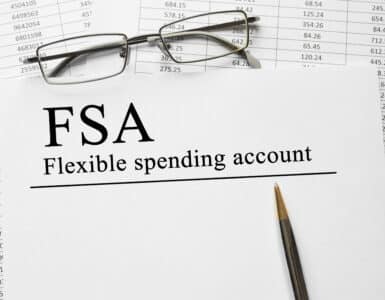Dollar-cost averaging is a great way to invest money steadily over time.
It’s simply deciding to invest a set amount of money at fixed intervals. By doing so, you can smooth out the average price at which you’re purchasing your investments. Here’s what you should know about dollar cost averaging.
The Basics of Dollar-Cost Averaging
Dollar-cost averaging is the practice of investing a set amount of money at regular intervals. You plan to make a habit of doing this regardless of how the market is performing.
Benefits of Dollar-Cost Averaging
There are several benefits to dollar-cost averaging:
- Non-Emotional. When you decide to invest a specific amount of money regardless of the situation, you remove the emotional aspect of investing. This is a good thing, as buying or selling stocks based on how you’re feeling is usually a bad idea.
- Removes Timing. No one can time the stock market perfectly. Dollar-cost averaging removes the temptation to try to do so.
- Long-Term Focus. Dollar-cost averaging helps you stay focused on the big picture. This is key because staying invested long-term is the best way to get the most bang for your buck.
Dollar-Cost Averaging Example
Albert wants to invest in an up-and-coming tech stock, TECHMO. The stock price has fluctuated between $20 – $30 per share over the past year. Albert decides to use dollar-cost averaging instead of watching the stock daily and waiting for the “perfect” time to buy.
Albert will automatically deposit $100 on the 15th of each month into his brokerage account and invest in TECHMO.
Month 1
TECHMO $27/share
100/27 = 3.70 shares
Month 2
TECHMO $29/share
100/29 = 3.45 shares
Month 3
TECHMO $19/share
100/19 = 5.26 shares
Each month that $100 investment bought a different number of shares. When the stock price was higher Albert’s $100 bought fewer shares. When the stock price was lower Albert’s $100 bought more shares.
Albert now has 12.41 shares of TECHMO stock at an average share price of $25.
The Choice
Dollar-cost averaging is a good idea if you are just starting out and have limited resources to invest. It’s also good for anyone who just wants to invest and not worry about timing the market.
Do One Thing: Schedule a monthly deposit into your brokerage account (or retirement account) to purchase a preselected stock or basket of investments.
This information is intended for educational purposes only and not as investment or financial advice. For financial, tax, and investment guidance, contact a licensed financial advisor.






